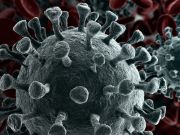
Stressed-out parents should reach out to others for support during the coronavirus pandemic, child health experts say. As the number of coronavirus cases rise and families spend long periods in isolation, parents face unique financial and emotional stresses. Research shows that family stress puts kids at increased risk of abuse, according to the American Academy… read on >






























